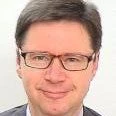The social inclusion of disadvantaged groups is necessary for reducing poverty and boosting shared prosperity, said government representatives, experts, and civil society representatives at a World Bank seminar on Friday, April 21. Persons with disabilities, Indigenous Peoples, as well as lesbian, gay, bisexual, transgender, and intersex (LGBTI) persons form a large part of the world population affected by poverty. They often face multiple discrimination and exclusion because of their overlapping identities, stressed Maitreyi Das, Social Inclusion Global Lead at the World Bank Group.
Patricia Peña, Director General for Economic Development of Global Affairs, Canada, highlighted the commitment of Canada—through its foreign assistance, diplomacy, and domestic efforts—to support policies and programs addressing economic and social inclusion of LGBTI people. Disaggregated data collection is one of the priorities for developing effective responses. Harry Patrinos, Practice Manager at the Bank’s Education Global Practice, made a cross-country assessment of poverty among Indigenous Peoples. Ulrich Zachau, the World Bank’s Country Director for Southeast Asia, discussed the Bank’s ground-breaking data generation efforts on LGBTI persons in Thailand. There is a need to find a shared way of measuring disability, said Nick Dyer, Director General of Policy and Global Programmes at the UK Department for International Development.
The World Bank’s new Environmental and Social Framework will facilitate the mainstreaming of issues related to vulnerable and disadvantaged groups in the Bank’s activities, said Ede Ijjasz-Vasquez, Senior Director of the World Bank’s Social, Urban, Rural and Resilience Global Practice. The active participation of persons with disabilities, Indigenous Peoples, and LGBTI persons is essential for effective social impact analysis. Natasha Smith, First Assistant Secretary at the Australian Department of Foreign Affairs and Trade, highlighted the work of a network of people with disabilities set up in Australia to promote disability-inclusive development. Luis Alfonso de Alba, Permanent Representative of Mexico to the Organization of American States, underscored the usefulness of local consultations in the implementation of international commitments for empowering Indigenous Peoples.
View tweets from the session below. Learn more about the World Bank's work on social inclusion, disability, indigenous peoples, as well as sexual orientation and gender identity (SOGI).
Click here to learn more about other events on building sustainable communities during the 2017 World Bank-IMF Spring Meetings.
Acknowledging #intersectionality is key to understanding and achieving social inclusion #inclusionmatters pic.twitter.com/tX8Ibh2kXU
— Jing Guo (@jinggdc) April 21, 2017
Discussing gains in disability-incl development & continuing gaps @McNhlapo Natasha Smith @dfat & Nick Dyer @DFID_UK #inclusionmatters
— Deepti Samant Raja (@dsamant) April 21, 2017
#DYK 1 billion ppl hv #disabilities 80% live in the developing world some are queer #InclusionMatters @DFID_UK @natashasmith72 @WorldBank pic.twitter.com/QqBtKmZMk6
— Clif Cortez (@ClifCortez) April 21, 2017
Indigenous peoples right to quality education #inclusionmatters https://t.co/x9m5NBr6w0
— Harry A. Patrinos (@hpatrinos) April 21, 2017
@hpatrinos book key finding: #indigenous peoples are the poorest of the poor but there are good lessons in Asia #inclusionmatters @WorldBank https://t.co/OdEdTDVnjz
— Ede Ijjasz-Vásquez (@Ede_WBG) April 21, 2017
Bringing India into the conversation on #indigenous peoples. Our analysis on #childmortality among #adivasis https://t.co/OlW0odRLlQ
— Maitreyi Bordia Das (@DasMaitreyi) April 21, 2017
We need to bring all development partners around #SOGI agenda and engage with #LGBTQI communities for action - #inclusionmatters @WorldBank
— Ede Ijjasz-Vásquez (@Ede_WBG) April 21, 2017
Yet another gap in knowledge: disaggregated data on Indigenous ppl @hpatrinos @WorldBank #inclusionmatters #datamatters #fillthosegaps
— Phil Crehan (@PhilofDelphi) April 21, 2017
#InclusionMatters to ensuring no one is left behind. Mainstreaming #disability in development is key to reaching #SDGs. #SpringMeetings pic.twitter.com/2gJCaVFWfY
— Gina Cosentino (@politixgirl) April 21, 2017



Join the Conversation